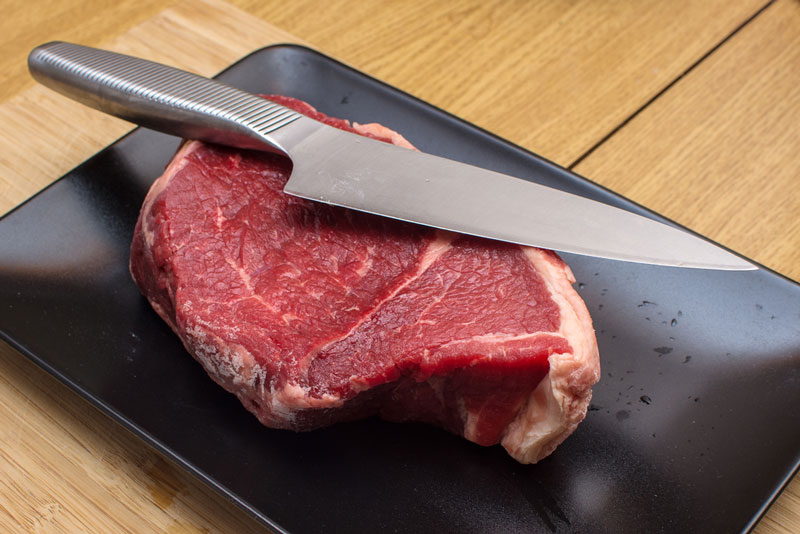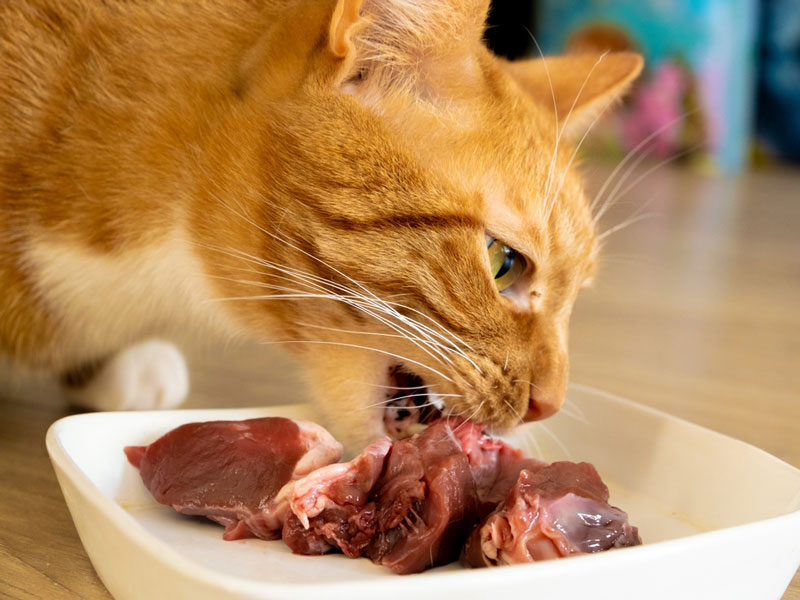Have you ever wondered what meats your fluffy feline can eat? Cats are obligate carnivores, which means they thrive on diets rich in animal protein! Some of the meats that are safe for our furry friends include chicken, turkey, beef, and fish. However, not all meats are created equal, and there are certain cooking methods to consider as well.
Feeding our cats the right types of meat is not only essential for their survival but also for their overall health and happiness. Imagine a cat happily chomping on grilled chicken or licking its paws after a delightful fish meal. It is definitely an easy recipe for a content kitty! Cats need the nutrients found in meat, such as taurine, vital for their eyes and heart health. So, as we pamper our cats with their favorite proteins, we also ensure they are living their best lives.
If you’re curious about which meats are best for our cats, how much to feed them, and what benefits and risks to keep in mind while including meats in their diet, keep reading! We’re about to explore the world of kitty cuisine and unlock the secrets to keeping our feline pals healthy and happy.
You might also be interested in: Can Cats Eat Ribs?
What Meats Can Cats Eat?

When it comes to our purring companions, we need to make sure they’re enjoying safe and healthy meats. Cats can consume various meats, and some of the most common include:
1. Chicken: This is probably the most popular choice! Cooked chicken is a favorite among cats. It’s rich in protein and amino acids, which are vital for cat health. Just make sure to remove the bones and skin before offering it to them.
2. Turkey: Like chicken, turkey is another lean meat that many cats enjoy. It contains essential nutrients and adds variety to their diet. Again, ensure that it is cooked and free of bones.
3. Beef: While not every cat may be a big fan of beef, it can be a great addition to their meals. Lean cuts of beef can provide a good source of protein. Just be sure to cook it thoroughly and avoid adding any seasoning.
4. Fish: Tuna and salmon make for a tasty treat! Cats often love the smell and taste of fish. However, due to potential mercury levels, it should only be offered as an occasional treat rather than a mainstay in their diet.
5. Lamb: Lamb is a good option, especially for cats with allergies to more common meats. It’s packed with nutrients, but as with other meats, ensure proper cooking and preparation.
We should remember that cats might have individual preferences. We get to be their personal chefs to ensure their health and happiness!
How Much Meats Can Cats Eat?
Understanding how much meat to feed our cats is essential for keeping them healthy and avoiding weight issues. It is crucial to know that the correct portion size varies based on several factors:
1. Size: Larger cats may require more meat than smaller ones. If we have a hefty tabby, they might need larger portions.
2. Age: Kittens, adults, and seniors all have different nutritional needs. Kittens need more protein for growth, while seniors may need lesser amounts depending on their health.
3. Activity Level: A more active cat might require more food than a lazy one who likes to lounge around. Let’s take time to observe our cats and adjust their diet accordingly.
4. Overall Diet: If we’re already feeding our cats a well-balanced commercial cat food, we might want to limit how much extra meat we provide. It’s important to keep their total calorie intake in mind.
5. Treats: Treats should make up only about 10% of their daily caloric intake. If we’re treating our cats with meats, we want to be careful not to go overboard.
As a rule of thumb, we could start with small portions, like 20 to 30 grams of cooked meat as an addition to their regular meals. Always look to consult with our veterinarian for specific advice on portions! Every cat is unique, and we want to tailor their diet to fit their needs.
Benefits Of Meat To Cats
1. Excellent Protein Source: Meats are high in protein, which is crucial for muscle development and maintenance. Cats need protein to fuel their bodies and keep them active and playful.
2. Essential Nutrients: Meats provide essential nutrients such as taurine and arachidonic acid. Taurine is vital for heart health, while arachidonic acid helps manage inflammation.
3. Encourages Hydration: If we feed our cats wet or lightly cooked meats, they are likely to get more moisture in their diet, which is great for preventing urinary tract issues!
4. Keeps Teeth Healthy: Gnawing on meat can help keep our cats’ teeth clean, making it a natural way for them to maintain oral health while enjoying their meals.
5. Variety in Diet: Rotating different meats keeps meals exciting! Variety can also prevent boredom, making it less likely for cats to become finicky eaters.
By giving our cats an appropriate array of meats, we not only work towards fulfilling their dietary needs but also contribute to their overall happiness and enjoyment in life.
Dangers Of Feeding Meat To Cats
While many meats can be beneficial, we do need to be aware of certain risks associated with feeding cats meat:
1. Bones: Cooked bones can splinter and cause choking or serious injuries in a cat’s digestive system. Always remove all bones before serving meat.
2. Raw Meat Dangers: Some cat owners believe in feeding raw diets. However, raw meat may carry harmful bacteria that can harm both cats and humans. Consulting a veterinarian before considering this option is vital.
3. Seasonings and Spices: Never season the meats we prepare for our cats. Ingredients like garlic and onions are toxic to cats. Stay cautious with what goes into their food.
4. Fish in Moderation: Fish, while tasty, should be given sparingly due to mercury exposure. Eating too much fish can lead to health concerns in the long run.
5. Allergies: Some cats may have food intolerances or allergies. Introduce new meats slowly and observe for any adverse reactions like vomiting or diarrhea.
We want our cats to have a sumptuous feast, but we must also take all the necessary precautions to keep their tummies happy and healthy!
Substitute Of Meat For Cats
1. Commercial Cat Food: Believe it or not, high-quality commercial cat food is formulated to meet our cats’ needs! When unsure about feeding meats, we can opt for reputable brands designed for balanced nutrition.
2. Cooked Eggs: Eggs can add a great protein boost to our cats’ diets. Make sure they are thoroughly cooked and free of any additives.
3. Vegetable Protein Sources: Although not as effective, some cats can benefit from plant-based proteins like peas and lentils in moderation when mixed with meats.
4. Ferrets or Small Mammals: These adorable critters often have similar dietary needs, and the meats we use for them can also be introduced to our cats in small amounts.
5. Insects: Some cats enjoy the occasional treat of insects! They are high in protein and can be a fun way to add variety.
Finding the right substitute can be just as exciting for our furry pals. As we experiment with options, we must remain vigilant and make sure they enjoy every bite safely!
What Meats Can Cats Eat? Frequently Asked Questions
Can My Cat Eat Raw Chicken?
Raw chicken comes with the risk of bacteria and parasites. It is best to cook it thoroughly to eliminate these risks.
Is Fish Good For Cats?
Fish can be beneficial in moderation, but make sure to limit it to prevent mercury poisoning.
Can I Give My Cat Leftovers From My Plate?
In some cases, it may be okay as long as the leftover is safe and free from harmful seasonings. Always check before serving!
How Often Should I Feed My Cat Meat?
Meat can be served as a treat a few times per week, while their main diet should be balanced cat food.
What Should I Avoid Giving My Cat?
Avoid garlic, onions, chocolate, and raw meats. These can be harmful to cats.
Final Thoughts
Feeding our cats the right meats can be an enjoyable adventure for us and our pets. By understanding what meats are safe, how much to offer, and the potential benefits and risks, we ensure that their dining experience is delightful and healthful.
Let’s keep exploring topics to provide even more information on our furry friends. For instance, have you ever wondered about the dangers of chocolate for cats? Or maybe you are curious if dogs can eat specific fruits? Whatever it is, there’s always more to learn. So let’s take a look at our blog for our next cat tale or a guide on cooked steak dangers for our whiskered companions.


